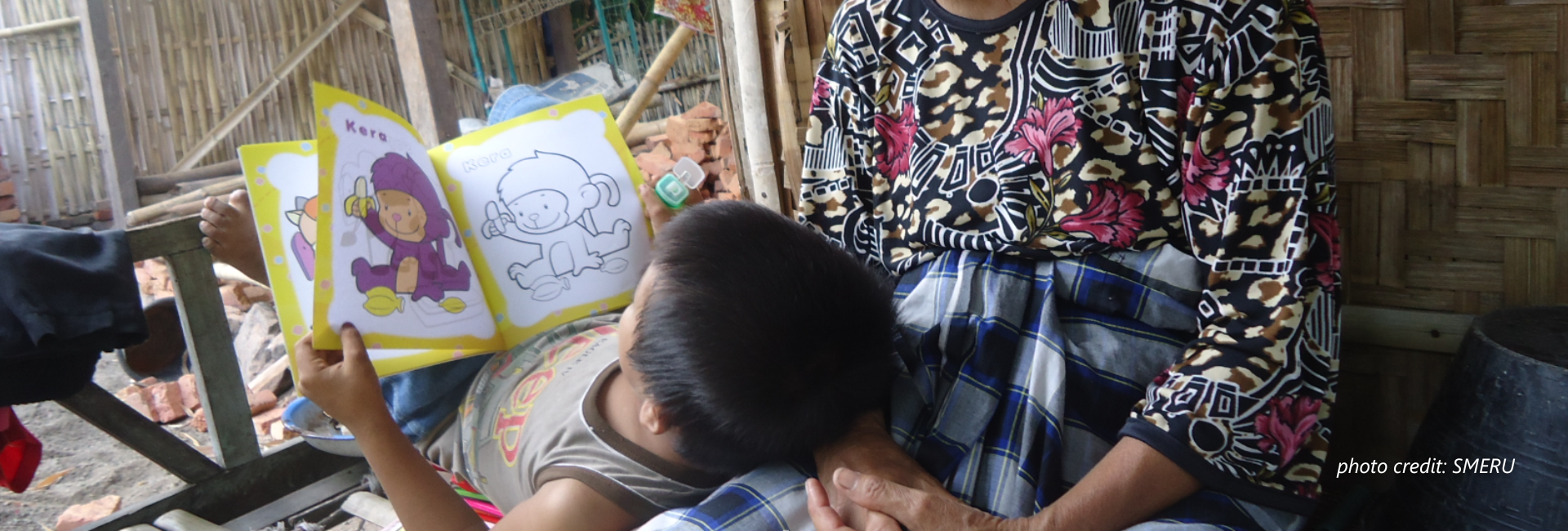The objective of this study is to obtain a description of child well-being, caregiving arrangements, and child caregiving practices in both poor migrant and non-migrant families in two migrant sending districts, namely Kabupaten Banyumas and Kabupaten Lombok Tengah. This description is followed by an explanation of government and community support, especially for poor children who were left by their migrant mothers.
This study finds that there is a difference between the well-being of children from migrant and non-migrant families if well-being is seen through the aspects of cognitive ability, physical growth, and psychological conditions. Children from poor families whose mothers are migrant workers in this study, on average, have results from the cognitive ability test, height per age, and psychological tests that are lower than children from poor non-migrant families. More than half of the children from poor migrant families were left behind by their mothers for the first time at the age of less than 5. Most of them are taken care of by the biological father and/or grandmother/grandfather. The ratio of caregivers per child is higher in poor migrant families than in poor nonmigrant families. This illustrates that there is actually a positive coping strategy present in migrant families by allocating more caregivers as an effort to maintain quality of care for children in the midst of poverty and migration of the mother.
The pattern of care practices as seen from the fulfillment of basic needs of children (summarized in physical, cognitive, emotional, and supervision needs) shows that in terms of learning activities and supervision, there are not many differences between poor children from migrant and non-migrant families. Differences in care practices appeared in matters relating to physical and emotional needs, which in this case show that the mother's presence at crucial ages and well-maintained communication between mother and child in the family are important.
This study also uncovers that there has been no specific and systematic support scheme from the government, both at the district as well as at the lower levels, to facilitate the various needs of children from poor migrant families. Only a few support efforts are focused on the training of care for the families left behind, such as ‘fathering’ training, management of remittances, and the communication link between the family and the mother who has migrated. These support efforts are usually conducted within a certain community and are carried out spontaneously by volunteers who are concerned for the migrant families and their children. While it has been found that children from the poor migrant families in this study need more attention, this also illustrates that there is still a gap in policies provided by the governemnt for children from poor migrant famillies. In other words, the existing policies that govern migrant workers and issues in managing these policies affect the caregiving arrangements that can still be carried out by the mothers from afar.



